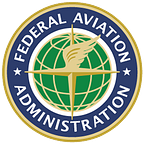Fatigue Countermeasures
By Jennifer Caron, FAA Safety Briefing Magazine Copy Editor
Have you ever fallen asleep at the wheel or driven home and don’t remember the drive? Are you on edge or short-tempered? Have you ever forgotten to replace an oil cap or mis-rigged the flight controls?
If you answered yes to any of these questions, you might be suffering from fatigue. The issue of fatigue is critical in 24/7 operations and has recently been associated with a number of aviation incidents and accidents.
You might be surprised how a few fatigue countermeasures can improve your mood, health, and safety. A little extra sleep can improve your interaction with family, friends, coworkers, and even the people you drive by on your way to work.
The FAA Safety Team (FAASTeam) is committed to helping you achieve the highest level of safety by providing the resources you need. Visit FAASafety.gov to learn about the hazards of fatigue, the role of sleep, and methods you can use to effectively reduce or eliminate fatigue at home and work.
Train From Home or Hangar
Register on FAASafety.gov.
🔧 You’ll also find thousands of free, online safety and risk reduction seminars and webinars that you can attend virtually. There are also online courses available. Most are free or low cost.
🔧 Need to renew your inspection authorization? There’s a list of Inspection Authorization (IA) renewal courses and programs as well.
🔧 Take a look at the training on risk management and human error in the maintenance hangar tab, and you’ll also discover resources on everything from maintenance alerts and safety tips to standards, regulations, and scholarships for up-and-coming mechanics.
Complete the 2023 online Core Course — Fatigue Countermeasures for AMTs (ALC-911)
(Click on the Maintenance Hangar tab.)
🔧 You can complete the course in multiple sessions, and then take the exam.
🔧 Second time’s a charm — if you didn’t pass the first time, you can re-take the exam right after your first try.
🔧 Need a refresher? You can take the course again 90 days later and receive additional AMT or WINGS program credit.
Get An Award for Recurrent Training
Staying proficient is not easy, but it is important for each aviation maintenance technician (AMT) to take a personal interest in continued and recurrent training.
Register at FAASafety.gov to participate in the AMT Awards Program and get your award for receiving, promoting, and fostering initial and recurrent maintenance training.
🧰 Eligible training also includes aviation maintenance career-related training in such categories as technology, human factors, and certain courses from an accredited trade school or university.
🧰 You can enter your eligible training in the My AMT tab under Enter Eligible Training.
🧰 Pro Tip: Keep a personal log to document all completed training and recent experience requirements. Keep all your training certificates.
🧰 Manufacturers, repair stations, and FAASTeam members develop courses for AMT credit with a focus on accident/incident causal factors, special emphasis items, and regulatory issues.
🧰 Technicians who successfully meet the program requirements within a given calendar year will obtain a certificate of training, and a Bronze, Silver, or Gold AMT Award!
🧰 Your employer can also get a Gold or Diamond Award of Excellence based on the number of technicians in the company that receive an award each year.
If you have any questions or need help, contact Guy Minor at Guy.D.Minor@faa.gov.
The learning process never ends. Get recognized, awarded, and become a safer technician by going to FAASafety.gov today.
Jennifer Caron is FAA Safety Briefing’s copy editor and quality assurance lead. She is a certified technical writer-editor in the FAA’s Flight Standards Service.
